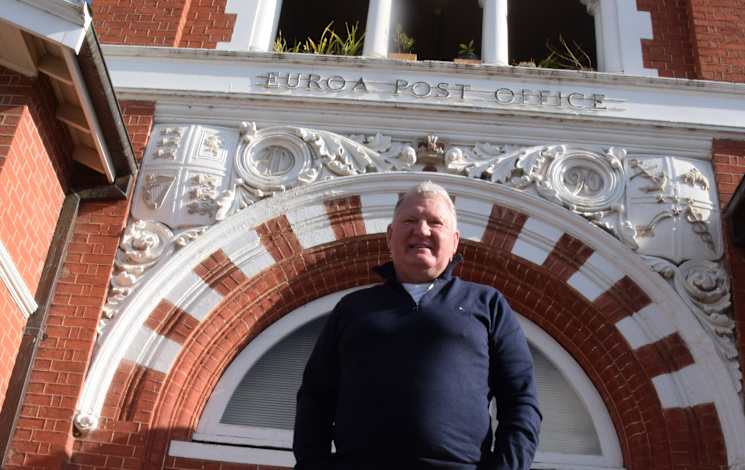FIFTY years is a long time in any career, with most people reaching such milestones always reflective of change in their work environment over the decades.
The career of Euroa’s Kevin Storer allows him to list off the evolution of communication as most would know it, and muse over lesser-known risks as well.
Kevin celebrated his fiftieth year working for Australia Post last month and spoke about starting off as a 17-year-old telegram deliver boy on a pushbike in Mansfield.
“My duties alternated every two weeks” Mr Storer said.
“In one week, I would move about 250 to 300 telegrams in a day and on the other week I would be what they called a night boy on the old telephone exchange.”
Latest Stories
Back in 1974, the postmaster general ran both the nation’s postal service and telephone system (precursor of Tesltra) before they split into two.
Kevin’s first night on the telephone exchange was memorable, it being Christmas Eve 1974.
Cyclone Tracy hit Darwin and as the only conduit for telecommunications, Kevin’s baptism of fire is one that stays with him.
“In fact, that was the most nerve-wracking day of my fifty years to be honest,” he said.
“All communication went through there and that was my initiation.”
About four years later, Kevin transferred from Mansfield to Benalla where he completed his apprenticeship and then worked his way up to an operational management role for fourteen years.
He is currently an area manager for northern Victoria.
One change he has seen has been the evolution of postie transport modes as they adapt with changing technology, starting with his original pushbike and ending with today’s battery-operated buggies, which represent the most significant change since phone calls replaced telegrams.
“The standard letter has really fallen away, hasn’t it,” Kevin said.
“That’s because of the digital world we have moved into; nobody sends postcards anymore; bills don’t come by letter that much.
“But the parcel deliveries now offset that downturn in letters and the electric buggies are well designed for getting parcels delivered.”
One package that caught his eye in the early 1980s also got his heart pumping.
The nondescript but ‘curious’ package was addressed to a Saudi prince and, due to an unclear address, Kevin was obliged to investigate.
“I opened it and saw wires and so forth - a panic shoots right through you because it’s the last thing you expect.”
One bomb squad visit later, with a managed explosion outside and Kevin was safe, and despite the authenticity of the bomb, it was clearly in transit for use elsewhere.
“Where the battery should have been, he had put in a piece of dowel.”
Although he can shrug off being ‘safe’ from a bomb, Kevin is both coy and serious about the impact of dogs on postal delivery staff.
He said that apart from cars reversing out of driveways, dogs remain the biggest challenge for all posties.
“In Australia there are, statistically, nine serious dog attacks a day and about half of them end up in hospital."
However, he accepts this comes with the job, more so because dogs can act so differently when owners are not around, and he cites his own dogs as becoming ‘something different’ when the mail is being delivered.
There are too many dog stories to draw from and – quite nobly – he has no reason to take anyone to task on it.
Kevin has one message for any professional, which he has drawn from his own experience.
“In the workforce - in any job - it is important we have a good work-life balance,” he said.
“I fell into a rut at one time, going to work, thinking about work at home, and not finding that balance.”
When retirement finally beckons, Kevin says he knows it will be a challenge, not least for the satisfaction that comes with the vocation in regional and rural areas.
“It is hard to let go; it has been a long journey.
“I have met a lot of great people over that journey and have made a lot of great friendships.
“But it is so very satisfying working in country towns where you know your customers and they know you and you can chase missing letters up for people.
“You don’t get those kind of customer stories happening in the big cities.”















